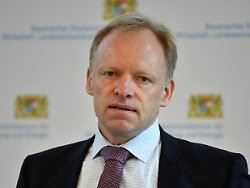Sunday June 20th 2021
Delta “Serious Danger”
Ifo boss warns of “hard autumn”
In view of the increasing spread of the delta variant of the corona virus, Ifo boss Fuest warns of new risks for the economic recovery. In particular, the areas that had already suffered severely from Corona would be affected again. The economist also appeals to the new federal government.
The economic research institute Ifo has warned of a setback in the economic recovery if the corona infection numbers rise again because of the new Delta variant. “The Delta variant is a serious threat to the German economy,” said Ifo President Clemens Fuest to the news portal t-online in an interview.
All would not be lost if the variant increased the incidences again, added Fuest. However, the recovery would be delayed. In particular, the areas that had already suffered severely from the pandemic would be affected again, i.e. the travel industry, restaurants or retail. “Then we would have a hard autumn ahead of us.”
According to figures from the Robert Koch Institute for the first week of June, the proportion of the Delta variant in Germany has almost doubled to six percent within a week. In Great Britain, the more contagious variant has taken over the dominance – although vaccinations there are much more advanced than in Germany. Easing was stopped there because of increasing incidences.
Fuest: “We will feel the consequences for a long time”
In general, Fuest does not consider the crisis to be over yet. Without the pandemic, the economy would have grown in the past year and a half, he said. “Instead, we have accumulated an enormous mountain of debt during this time. We will feel the effects of the crisis for a long time to come.”
At the same time, Fuest warned that the next federal government should not jeopardize economic growth through higher taxes. “If there are tax increases, as some parties would like, growth will be stifled.” The introduction of a wealth tax alone would greatly aggravate the burdens on companies.
The economists at the Munich institute recently cut their growth forecast for Germany for this year to 3.3 percent – mainly due to bottlenecks in the delivery of preliminary products such as chips for the automotive industry. According to the Ifo experts, the economy could reach the pre-crisis level at the beginning of next year. You are thus more pessimistic than Federal Minister of Economics Peter Altmaier, who recently announced an increase of up to 4.0 percent.
.
